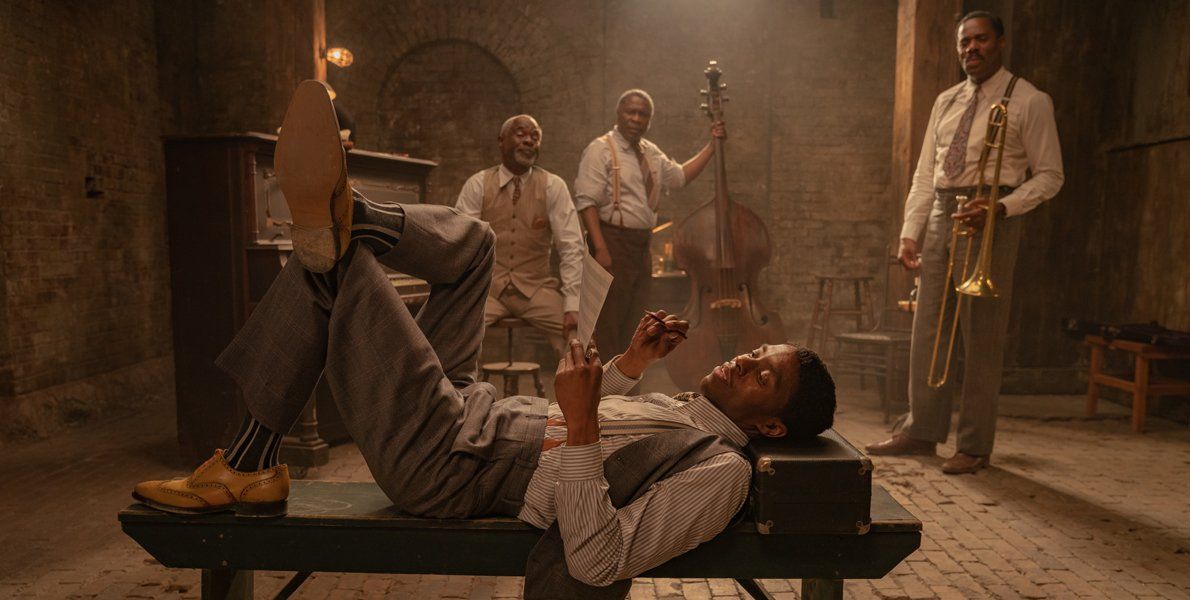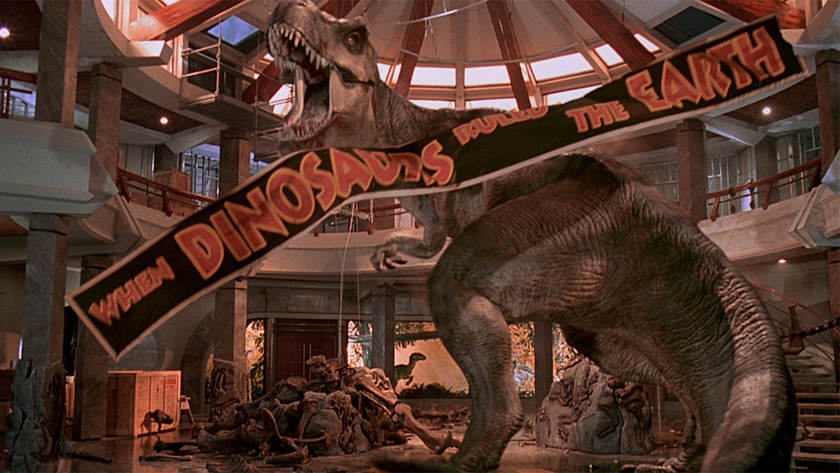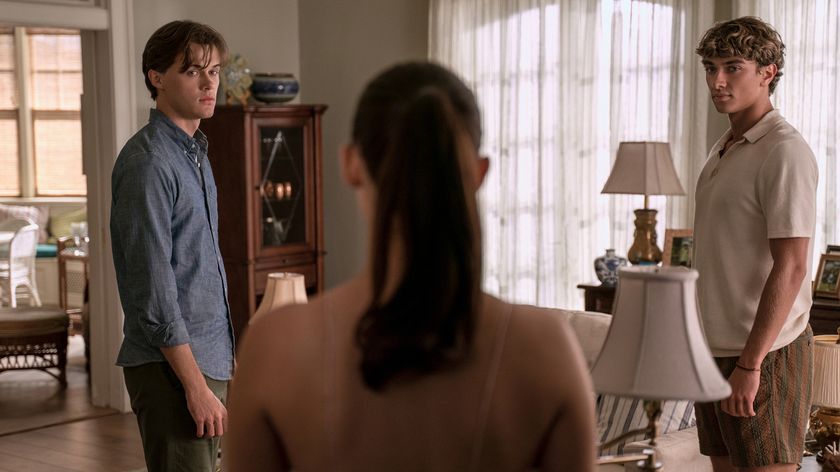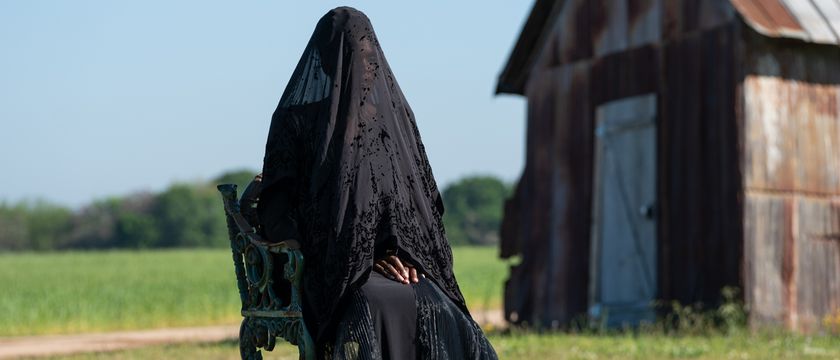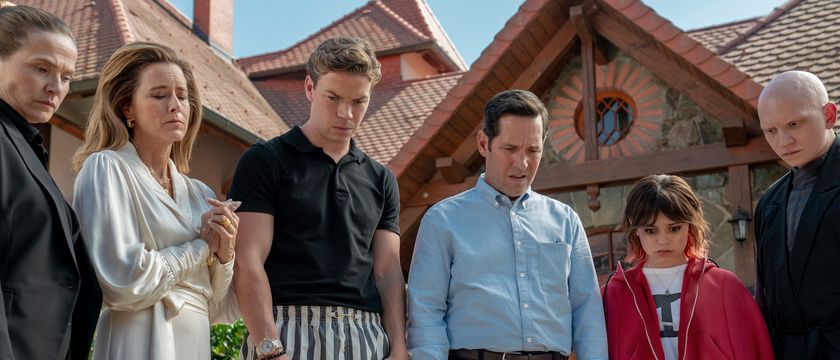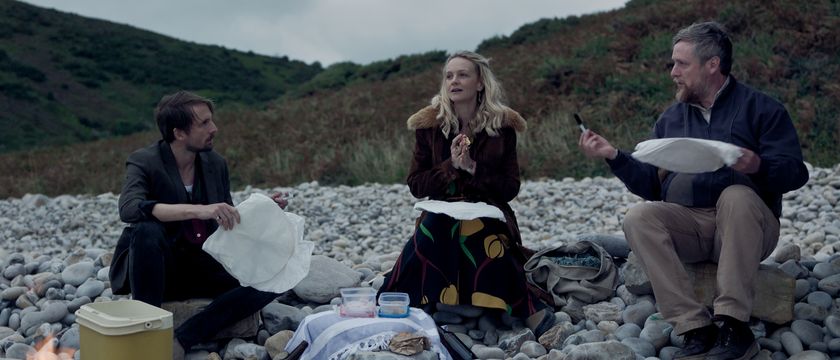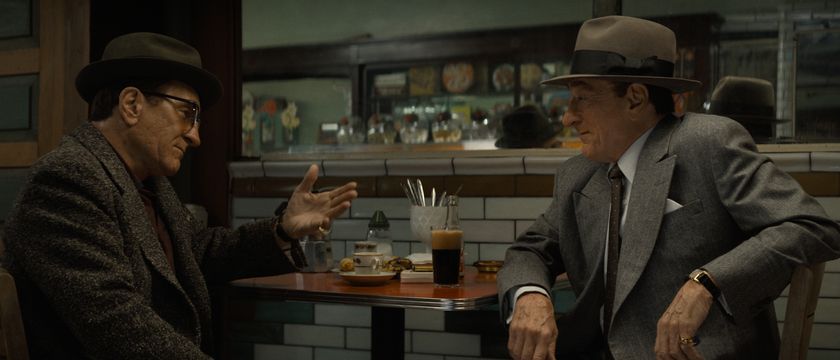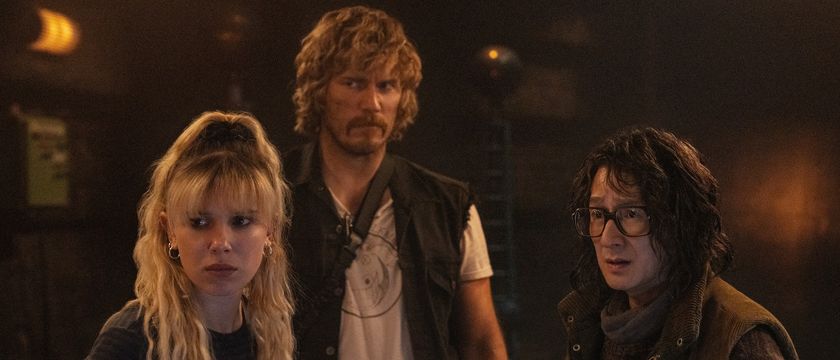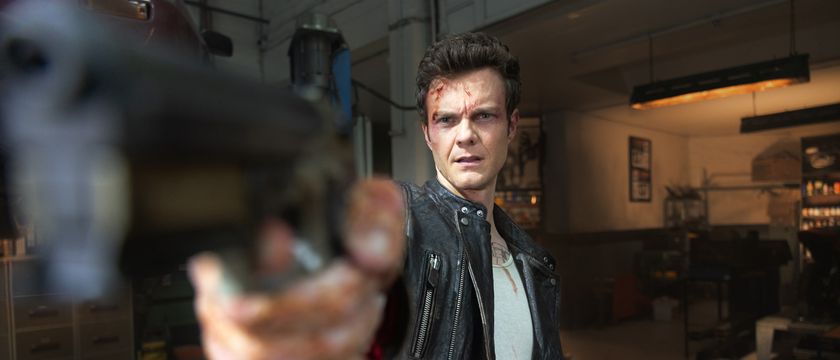In the wake of Chadwick Boseman’s death this past summer, many of his films hit differently than they did before. James Brown’s pronouncements in Get On Up about living his life boldly after being “born dead” takes on a new meaning knowing how the actor secretly battled cancer for years. T’Challa’s time in the otherworldly green veld in Black Panther visiting his ancestors takes on new emotional power. Stormin' Norman’s presence as a ghost-like mentor in Spike Lee’s Da 5 Bloods possesses new significance for everyone who has lionized Boseman’s terrific contributions to cinema. These effects are unintentional, but they’re unignorable, and deeply affecting.
George C. Wolfe’s Ma Rainey’s Black Bottom is arriving under different, special circumstances, however. The feature is the last one that Chadwick Boseman made before he passed away, and rather than reflecting on it differently in retrospect, every audience is going to carry the weight of that knowledge with them into their first viewing. This makes it feel important to clarify two things immediately: 1) the fact that it’s Boseman’s last performance absolutely colors one’s experience watching the movie, truly rendering it devastating to the heart, and 2) even without the awful outside circumstances, the film would still be received as the incredible piece of work that it is.
Following Denzel Washington’s Fences in 2016, Ma Rainey’s Black Bottom is the second feature adaptation of an August Wilson play, and transports viewers back to 1920s Chicago as legendary singer Ma Rainey (Viola Davis), known as the “Mother of the Blues,” prepares to record a new album. Given Rainey’s reputation as a diva, her manager, Irvin (Jeremy Shamos) is pure nerves, with the owner of the recording studio (Jonny Coyne) breathing down his neck.
With Ma Rainey running late, members of her band arrive first – including trombonist Cutler (Colman Domingo), pianist Toledo (Glynn Turman), and bassist Slow Drag (Michael Potts) – and they set up in the building’s rehearsal space. Pulling up the rear is the band’s impressive trumpeter Levee (Chadwick Boseman), who was delayed while buying a pair of fancy new shoes that he was able to get thanks to poker winnings from the previous night. And not only is he excited about his fresh footwear, but also his very bright future. Irvin has chosen his arrangement of the song “Black Bottom” to be performed on the new record, and he’s been doing the legwork to both compose a selection of new tunes and put together a band of his very own.
What’s unfortunate for him is that Ma Rainey has recognized his ambitions, and isn’t willing to be stepped on as he tries to climb to the top. She shuts down Irvin’s suggestion that they use Levee’s version of “Black Bottom,” insisting on doing her original version, and that conflict sets off a chain reaction of escalating pain as truths and staunch opinions come to light in the aftermath.
Viola Davis is an absolute force.
With the vast majority of the drama playing out in one of two locations (the studio and the rehearsal space in the basement) and only a few musical performances, Ma Rainey’s Black Bottom puts the responsibility for captivating the audience on the performers, and while the entire cast is truly phenomenal, it’s still remarkable how brightly Viola Davis and Chadwick Boseman shine.
Wearing intensely dark eye makeup and capped front teeth, Viola Davis’ visage as Ma Rainey alone puts the audience off guard, but that’s just first reactions. Davis has such commanding presence in the film that she may as well throw a grenade into every room as she enters. She renders her male co-stars two inches tall, and is downright frightening in the way she wields her power and stature – even if it’s something as simple as demanding a bottle of Coca-Cola before she sings a single note. It’s a fascinating narrative tightrope walk, as Ma is at times the story’s protagonist, and at times its antagonist, depending on moment-to-moment perspective, but what’s consistent is that Davis is strength incarnate.
Chadwick Boseman delivers his most powerful performance.
It’s Chadwick Boseman’s Levee that plays the inverse of that tightrope walk, delivering what is the best performance of his career. Right from the outset his charisma is hypnotic, bolstered by what seems to be unflappable confidence and optimism – but the conflict of the story grinds him down, and the emotional transformation is stunning. Boseman has a series of raw monologues that uncover what it is that motivates him and drives his view on the world, and they’re shredding.
And, as alluded to, their poignancy is enhanced by the heartbreaking passing of Chadwick Boseman. You can’t help but read emotional meta context from Levee raging against God for permitting the horrors in our world, and draw parallels between the trumpet player’s trodden ambitions and Boseman’s lost potential to reign for decades as one of the great actors of his generation. It’s painful, but adds remarkable power to the film.
The intimacy of the setting makes the tension exponentially more palpable and extreme.
As was the case with Denzel Washington’s Fences, Ma Rainey’s Black Bottom very much feels like a stage play that has been translated as a feature, but that ultimately proves an advantage for George C. Wolfe. It’s not precisely a bottle story, as there is action that happens outside the recording studio, and characters do sometimes come and go, but it most definitely has the intensifying atmosphere of a bottle story, and that’s what’s key. It’s already literally wicked hot in the recording studio at the start of the film, but the temperature metaphorically continues to rise throughout, and you feel the energy as its ready to hit a boiling point and explode. It’s impressively orchestrated, and leaves you winded in the aftermath.
A huge part of Chadwick Boseman’s career was about playing iconic figures, including Jackie Robinson, James Brown, Thurgood Marshall, and the fictional T’Challa, and he did a remarkable job embodying all of them. It’s his turn as Levee in Ma Rainey’s Black Bottom, however, that Boseman stands out as the icon. It’s an awesome film, and a solemn goodbye.

Eric Eisenberg is the Assistant Managing Editor at CinemaBlend. After graduating Boston University and earning a bachelor’s degree in journalism, he took a part-time job as a staff writer for CinemaBlend, and after six months was offered the opportunity to move to Los Angeles and take on a newly created West Coast Editor position. Over a decade later, he's continuing to advance his interests and expertise. In addition to conducting filmmaker interviews and contributing to the news and feature content of the site, Eric also oversees the Movie Reviews section, writes the the weekend box office report (published Sundays), and is the site's resident Stephen King expert. He has two King-related columns.
